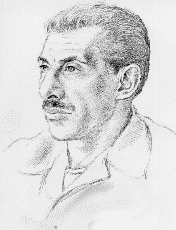
Idries Shah, also known as Idris Shah, Indries Shah, né Sayed Idries el-Hashimi and by the pen name Arkon Daraul, was an Afghan author, thinker and teacher in the Sufi tradition. Shah wrote over three dozen books on topics ranging from psychology and spirituality to travelogues and culture studies.
Robert Evan Ornstein was an American psychologist, researcher and author.

Tahir Shah is a British author, journalist and documentary maker of Afghan-Indian descent.

Ivan Tyrrell is a British educator, writer, and artist. He lives with his wife Véronique in the Cotswolds, England.
The objects of this Trust were to relieve poverty and sickness and promote health and advance education amongst refugees from Afghanistan during the Russian occupation.
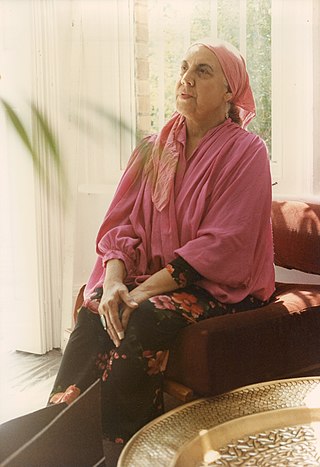
Amina Maxwell-Hudson was a British anthologiser of Sufi stories and folk tales, and was for many years the Chairperson of the College of Storytellers. She was the sister of the Sufi writers Idries Shah and Omar Ali-Shah, and the daughter of Sirdar Ikbal Ali Shah and Saira Elizabeth Luiza Shah, a Scottish woman. Her nephew is the travel writer and documentary filmmaker Tahir Shah; her nieces are Safia Shah and the writer and documentary filmmaker Saira Shah.
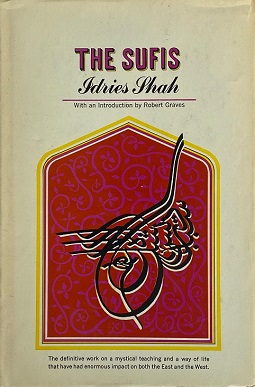
The Sufis is one of the best known books on Sufism by the writer Idries Shah. First published in 1964 with an introduction by Robert Graves, it introduced Sufi ideas to the West in a format acceptable to non-specialists at a time when the study of Sufism had largely become the reserve of Orientalists.
The Institute for the Study of Human Knowledge (ISHK) is a non-profit educational charity and publisher established in 1969 by the psychologist and writer Robert E. Ornstein and based in Los Altos, California, in the United States. Its aim is to provide public education and information on issues of health and human nature.
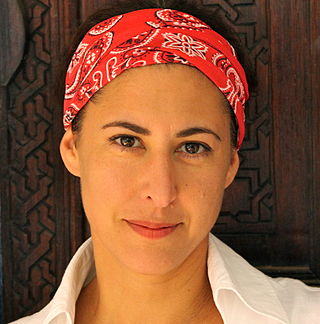
Safia Thomas is a British writer, editor, television news producer and member of the Afghan-Indian Shah family.

Knowing How to Know is a book by the writer Idries Shah published posthumously by Octagon Press in 1998. A paperback edition was published in 2000.

The Commanding Self is a book by the writer Idries Shah first published by Octagon Press in 1994. A paperback edition was published in 1997.

Wisdom of the Idiots is a book of Sufi teaching stories by the writer Idries Shah first published by the Octagon Press in 1969. A paperback edition was published in 1991. ISF Publishing, sponsored by The Idries Shah Foundation, published a paperback edition on 2015, followed by the ebook version and audiobook.
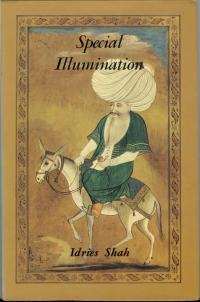
Special Illumination: The Sufi Use Of Humour is a book by the writer Idries Shah published Octagon Press in 1977. Later editions were published in 1983, 1989 and 1997.
Octagon Press was a cross-cultural publishing house based in London, UK. It was founded in 1960 by Sufi teacher, Idries Shah to establish the historical and cultural context for his ideas. The company ceased trading in 2014.

The Elephant in the Dark is a book by the writer Idries Shah, based on lectures he delivered at the University of Geneva as Visiting Professor in 1972–1973. He was invited to speak on the topic of “Salvation as a total surrender to God: an attempt at dialogue between Christians and Muslims.”
The Idries Shah Foundation (ISF) is an independent educational and cultural charity, set up by the family of the late thinker, writer, and teacher in the Sufi mystical tradition, Idries Shah, who wrote over three dozen books on topics ranging from psychology and spirituality to travelogues and culture studies.

The Pleasantries of the Incredible Mullah Nasrudin is a book by the writer Idries Shah, based on lectures he delivered at the University of Geneva as Visiting Professor in 1972–73. The book is a collection of tales, none more than two pages and almost all less than a page long, about the folkloric character Mulla Nasrudin. Published by Octagon Press in 1968, it was re-released in paperback, ebook and audiobook editions by The Idries Shah Foundation in 2015.
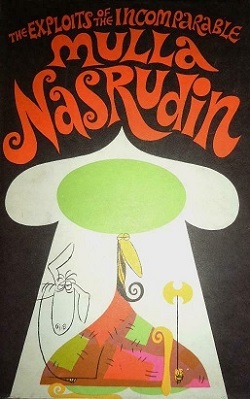
The Exploits of the Incomparable Mulla Nasrudin is a book by the writer Idries Shah, It consists of jokes and anecdotes involving the wise fool of Middle Eastern folklore, Mulla Nasrudin. Published by Octagon Press in 1966, the book was re-released in paperback, ebook and audiobook editions by The Idries Shah Foundation in 2014 and 2015.
Robert Cecil was a British diplomat and writer.













